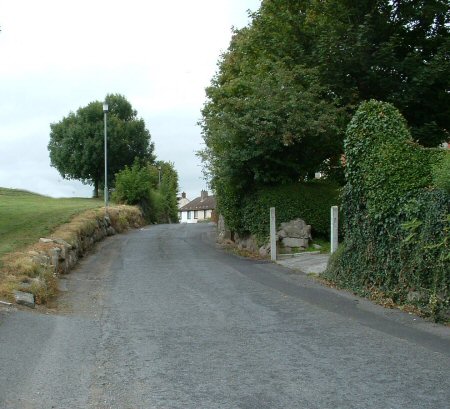The following information was unearthed from the local newspapers of sixty years ago.
One surprise for your editor was to learn that my parents were not, after all, among the very first residents of Rooney’s Meadow – which honour went to those who were allocated the first sixteen houses in
It took a further few years before all the other homes in the Meadow were completed and allocated, the last being Ballinlare Gardens (it alone being located in County Armagh, as our contributor Brian Fitzpatrick – whose parents got a home there – pointed out).
But it was the rules and regulations, and the long Council debates over allocation of these most desirable properties, of which I wished to write.
Perhaps the most shocking aspect was the blatant sectarian attitude of the then Stormont Unionist Government which controlled the purse-strings (public housing was built and thereafter grant-aided by Government agencies).
Their great terror was that Catholics would simply outbreed Protestants and by force of numbers vote in a United Ireland. Many reasons were evinced for the greater size of Catholic families – supposed over-indulgent government family allowances, slothfulness, idleness, unwillingness to work etc – but never was it whispered that offering greater opportunities would lead to greater restraint in family size, the one factor which ever since then has proved significant.
While Newry Town Council manfully struggled to achieve fairness in allocation, the Stormont Government threatened to withdraw the grant aid per house rent – estimated at the princely sum of 10/- a week (a substantial fraction of those original rents) – if any homes were allocated to families of more than seven members.
The paper quoted – the Frontier Sentinel – had as reporter one Max Keogh who later became proprietor of the same paper, Nationalist MP for South Down at Stormont and indeed, a few years later, himself one of the original tenants of Rooney’s Meadow! But at the time of the original debate, some sixty years ago, he was a local Councillor and vociferous supporter of fair play in the allocation of homes.
In mid-December 1947 the Urban Council spent 3.5 hours discussing the allocation of 56 houses (most of them on
At an earlier meeting the Council – on majority vote [there were dissenting voices] – had decided, in defiance of Government instruction, to prioritise the largest and most deserving families, especially those now occupying ‘condemned’ housing. This decision caused anxiety and consternation, not least for the then Town Clerk who would be the official to face the wrath of the spurned Government officials. Gerard Cronin was supported in this stance by a number of lily-livered Councillors. (I confess to a personal interest in the matter which jaundices my opinion of those on the Government’s side. Had common sense not prevailed Sonny and Eileen would have been deemed too profligate in the fertility stakes and I’d never have been a Meadowman!).
Max Keogh proposed allocation on merit, regardless of family size (which of course was code for ‘with special reference to large family size’) and he was seconded by fellow Nationalist and civil rights stalwart Joe Connellan. An objection came from the Unionist side to which Cronin replied that the Ministry’s regulation still held good in regard to the maximum number in a family but that they had agreed to changes in respect of the minimum.
In a rather strange twist the Clerk proposed that homes vacated by successful candidates might then be allocated to the larger families – homes almost universally smaller and most certainly inferior. Forty tenants of such homes were applying, he pointed out.
‘We can’t put families of twelve into four-roomed homes’, bleated one Mr McKnight – not because the homes were too small – but because they were frankly too good for those families!
Even some Nationalists baulked at defiance.
‘What is the position if the Ministry stop the grant?’ asked Councillor McAteer.
My father’s family (seven persons then) was one of the largest allocated a Meadow home at the time. The Housing Trust sent a rent lady round to ensure that the rent was paid and the homes were maintained to standard.
I will never forget her demanding to view the house -and especially the bathroom – after the sum of rent money was handed over. It was alleged by her superiors that these large families could not be trusted NOT to store coal in the bath-tub. Clearly, in their view, it would never be used for ablutions!
My mother was inevitably mortified – which left me, a six-year-old boy highly embarrassed for her.
How times have changed!

My family lived in the Meadow twice. First 1951 or so in Derrybeg Drive for a couple of years, then 1956 to 1959 at 56 Killeavy Road. Really good houses and lovely neighbours. I had a lot of friends and schoolmates there, particularly in Killeavy Road.